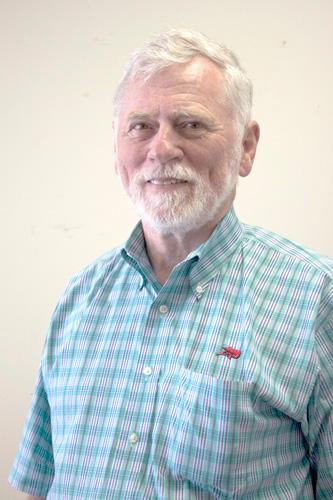It seems that every time there is cold weather, someone screams, “So much for global warming!” The past couple of weeks are no exception.
A discerning person might be aware of the fact that we normally have cold, even very cold, weather in our winter.
But people who don’t understand basic science are probably not educated in simple meteorology. What we are experiencing of late are variations in weather.
The definition of weather is the state of the atmosphere at a given time and place with respect to temperature, rain or lack there of, sunshine, etc.
Climate, on the other hand, is basically the range of weather variation expected in an area over a long period of time. Some simplify by saying weather is what is happening at the moment – what’s outside and climate is the long-term trend in an area.
First, let’s put the significance of this month to rest, and give it context.
It appears that January 2014 will fall between 24th and 44th among coldest months in the continental U.S. In fact, it seems that January 2011 will be shown to be colder. Did you know that Lake Pontchartrain froze a hundred yards or so from shore in December 1989? It resembled Lake Michigan.
When we experience rough weather, we tend to assume it is “the worst ever.” We also seem to focus on our situation and not notice global events. We subsequently forget other harsh storms and temperature changes.
Weather scientists are focusing on such events as polar vortices, Arctic amplification, and Arctic oscillations as possible causes to the cold temperatures in the Southern U.S.
Yet, while we are experiencing very cold weeks in the mid- to eastern continental U.S., California is mild and dry, Alaska is in a warmer trend, Europe is freezing, Australia is terribly hot – up to 130˚F in Melbourne – as is South America and Africa – all experiencing their summer, but facing extreme heat.
When scientists noted that there was a measurable warming trend on Earth, it was called global warming to describe gradual increases in temperatures. However, semantics are important in communication.
Further analyses revealed a complex mélange of trends: drying in one area, others becoming wetter, colder here, warmer there, glaciers melting everywhere, complex ice thickness changes in the Arctic and Antarctic, cooling or warming of ocean currents, rapid changes in locations of major atmospheric winds such as the jet stream, etc.
This understanding led to the widespread use of “climate change” as opposed to “global warming,” because we were not experiencing steady warming. Instead, we are seeing an unpredictable set of changes in temperature and humidity, as well as shifting weather patterns.
We have been in a warming mode for about 10,000 or so years. At the height of the Wisconsin Glaciation, the peak of the glacial advance 15,000 years ago, ice was about a mile deep where Chicago is today, and global sea level was about 450 feet less than it is today.
Once those glaciers began to melt, we entered an interglacial, warm period. During that time our planet has experienced many perturbations of climatic characteristics, but there has been a measurable warming trend.
The concern we have is: how much impact is human use of fossil fuels having on the heat retention of our atmosphere. All the signs show that carbon dioxide levels have increased considerably, which strongly correlates with climatic alterations.
Instead of non-scientists denying what is pushing these changes, humans should insist that we mount every effort to scientifically explore the phenomenon in question and develop global policy on methods to address the potentially devastating impacts.
The solutions are within our intellectual and technical capacity, and the cost will be justified when we prevent what the majority of the scientific community sees as looming catastrophe.
Imagine the economic and social growth we will see from new technological developments resulting from this scientific effort!
Most of all, get educated on these issues and learn what groups are driven by the future well-being of humanity and what groups are driven by ideology and short-term profit.
This coming Saturday will be 50 degrees warmer than the past Wednesday.
Robert Thomas, Ph.D., is a the director of the Center for environmental communications.
He can be reached at [email protected]
On the Record is a regular column open to all Loyola faculty and staff.
Those interested can contact [email protected]







